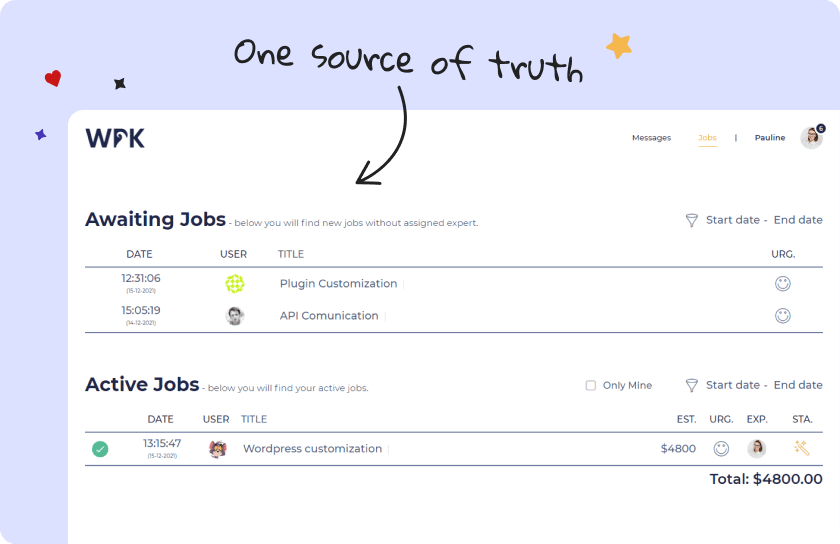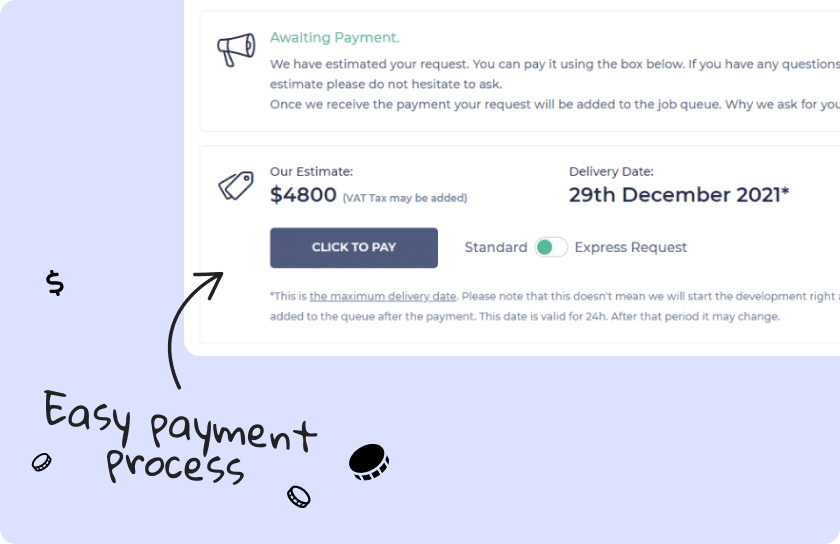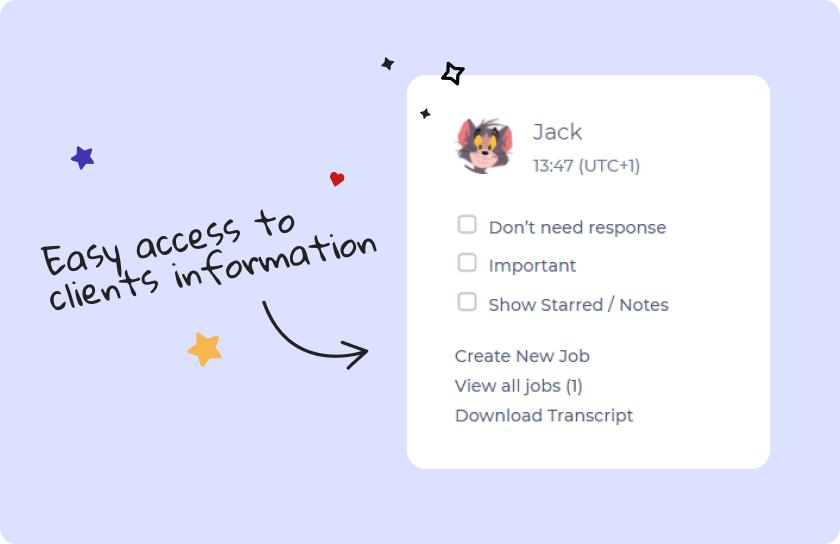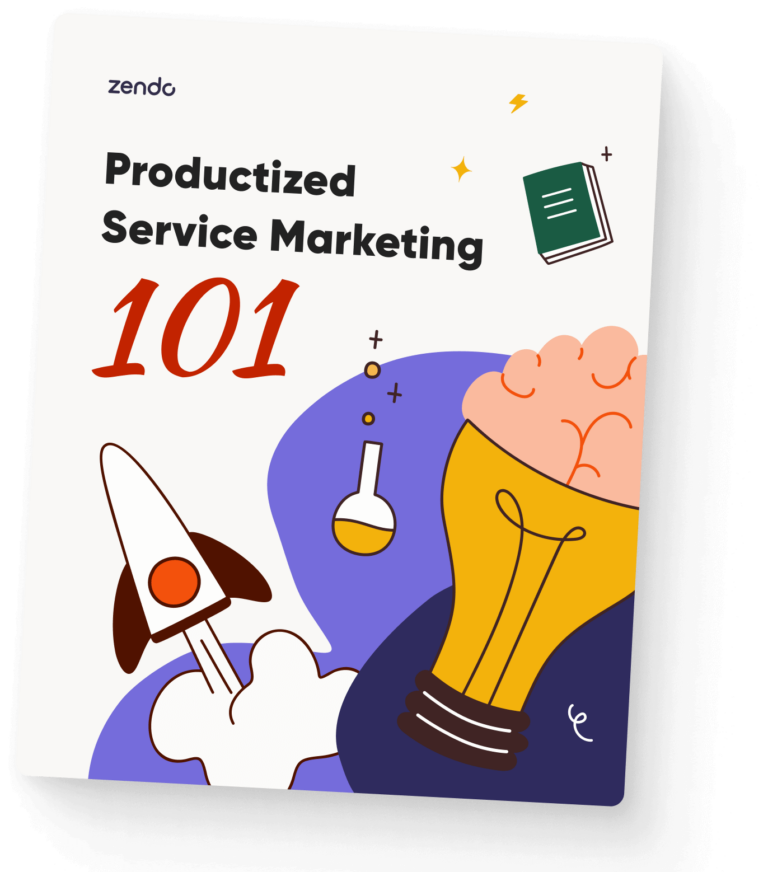Before Zendo, we had WPKraken, a platform designed and developed for internal use only. We surely didn’t expect the success it had, and that so many people would show interest in it. As an answer, we build the platform again, from the ground–up, with different technologies, to share our idea with the world.
We called this polished and battle-tested version Zendo.
If you’re curious to see what journey Zendo had to go through, buckle up and read on.
The problem
WPKraken, as a team of WordPress developers ready to handle even the most demanding tasks, needed a platform for client communication:
— where a potential client could inquire after the services offered,
— where it was easy to negotiate the terms and conditions,
— where everyone could stay up–to–date with the current ongoings of the project,
— where the clients could pay directly and with no delay,
— where the handover was smooth and effortless.
Unfortunately, back in 2016, there was no tool available that offered all of the above. So the WPKraken team developed their own platform, which became a point of pride in their portfolio.
The Solution
One Source Of Truth
The biggest challenge to any project management is handling information:
— ensuring that everyone knows where to find relevant data,
— making sure that nothing gets lost during the talks,
— establishing a system that lets new people get to speed quickly,
— removing the danger of any misunderstandings,
— eliminating the wasted time spent on repeating the same information over and over again.
WPKraken was well aware of the risks that came with using the usual customer relationship management and ticketing systems, most of all: the need for using additional tools and learning complex processes.
This over-engineered way of handling business leads to chaos. And chaos is not beneficial at all in keeping your clients happy enough to use your services again and recommend you to their network.
In short, this can significantly harm your revenue long–term.

In short, this can significantly harm your revenue long–term. After a thorough analysis, WPKraken decided that simplicity is the key. That the defining characteristics of a good platform should be ease of use, independence, and having every piece of data in one place.
Immediate Payments
In the name of simplicity, WPKraken — besides reducing a myriad of unnecessary steps to close the deal — decided to make another bothersome and time–consuming thing quick and easy.
The payment process.
The payment, which may seem like a straightforward and quick operation, actually takes a long time to process and requires middlemen. As a result, it might take up to two hours to complete the whole process — without including all the other delays that might come up due to external factors.
Instead of treating it as a bothersome, but necessary task, WPKraken saw an opportunity for innovative features.
On the WPKraken platform, team members can give a project estimation directly in the conversation. And clients can just as well pay them immediately by clicking on a single button, enabling them to finalize the payment via an online payment system. Therefore, all the worries about invoicing, gathering needed data, and processing become null.
And you gain your time back.

Even Faster Experience For Recurring Clients
Once a satisfied customer comes back for more, there’s no need to build the client’s profile from the ground up. And that’s often necessary when the conversation was spread over too many channels to count and there was no one responsible for documentation. And once the current project turns out to be a continuation of the past one, someone will surely have to waste their time searching for all the information, attachments, and data used previously.
With WPKraken, such situations are impossible.
All the information about a client is stored in one single place. It won’t be ever archived or deleted. Besides the general information, you can see the saved invoice settings which make the payment process even faster, and you can also easily access the client’s history and all exchanged data throughout the whole partnership.
That’s why each recurring client can count on having an even better and faster customer experience.

WPKraken versus standard CRM & Ticketing Systems
| WP Kraken | Standard CRM & Ticketing System |
|---|---|
| | |
| |
The Result
WPKraken was a roaring success. Within the first month of its existence, it has already managed to capture a lot of attention, resulting in 200 requests flooding the platform. With time, the results surprised even ourselves:
Along with its growth, the attention increased as well. More and more of WPKraken’s clients were asking after the platform, wanting to implement the same solution for their business. Unfortunately, it wasn’t possible due to technical limitations.
But it gave us an idea.
The world definitely felt the lack of simple, yet effective solutions that didn’t require help from external consultants on implementation and long onboarding processes.
So we created… Zendo.







